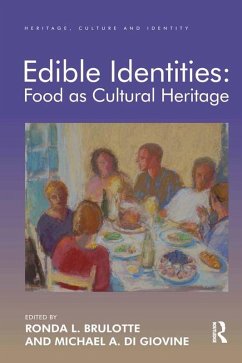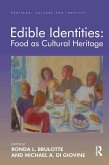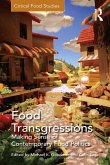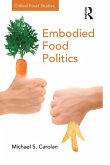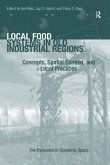Dieser Download kann aus rechtlichen Gründen nur mit Rechnungsadresse in A, B, BG, CY, CZ, D, DK, EW, E, FIN, F, GR, HR, H, IRL, I, LT, L, LR, M, NL, PL, P, R, S, SLO, SK ausgeliefert werden.
"This path-breaking collection examines cuisine and cultural heritage as they create and reinforce culinary identities across shifting planes of local, national, and transnational contexts. The essays, by leading specialists in food studies as well as by young scholars, focus on the US, Italy, Japan, Mexico, Slovenia, Spain, France, and Germany, as well as on UNESCO's role in promoting cultural heritage movements. An appetizing world tour of culinary heritage, and a must-read for serious food specialists." - Ted Bestor, Harvard University, USA and author of Tsukiji: The Fish Market at the Center of the World
"This is an excellent book. For those with an interest in food, heritage and tourism (separately and combined), it is a valuable academic text; for everyone else, it is still valuable as an important read. ... The book comprises an introduction by the authors and then 14 case studies from different parts of the world: one from Asia, two from South America, three from North America and seven from Europe, as well as a chapter looking at the work of UNESCO. ... What I really liked about the book was the passion and insight exhibited within each of the chapters." - Sean Beer, in Journal of Heritage Tourism
"'The unifying thread throughout the book is the paramount importance of preserving food as cultural heritage and as ancestral knowledge as a representation of the maintenance and restoration of physical, cultural, and spiritual well-being. When food rituals are properly performed, they unite us with our heritage, our community, and our planet." - Annals of Tourism Research
"I highly recommend this volume for classroom use and beyond. It is a significant contribution to scholarship in cultural studies, history, political science, anthropology, folklore, food studies, and any other field concerned with the state of the world today. It is an admirable and useful demonstration of the observation made by the editors that "Through the materiality of ethnic food and food-based experiences, complex, difficult-to-articulate problems and prejudices can find expression" (p. 9)."- Journal of Anthropological Research Lucy M. Long, Center for Food and Culture, Bowling Green, Ohio
"I found Brulotte and Di Giovine's book to be an exciting journey into the realm of food and heritage, politics and practices, identity and rebellion in the face of change through immigration, commodification and globalization. ... I highly recommend this book for anyone interested in understanding the relationship between tradition, as a part of authenticity, and innovation, as a requisite for market differentiation, as well as the nature of constructed identity as it relates to local/global food and/or heritage tourism studies." - Sue Slocum, George Mason University, Hospitality and Society

